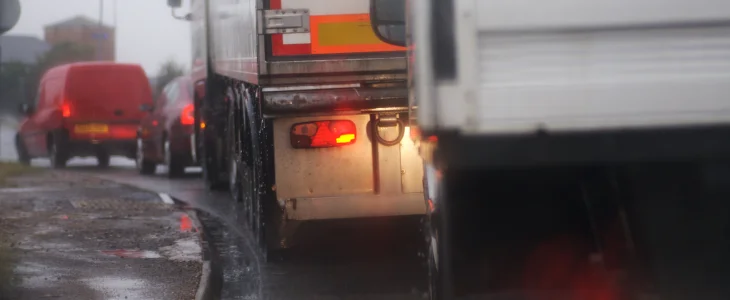The port of Houston is one of the busiest in America, which is why you probably see trucks and big rigs crowding our highways every day. Unfortunately, despite the best efforts of commercial drivers, accidents can and do happen between trucks and passenger cars. If you are involved in one of these collisions, you will need to understand what governs your truck accident claim.
This is where an experienced truck accident lawyer can be of excellent service. A great deal of the issues involved in your case will revolve around the ownership of the truck and the relationship of the company to the driver.
Who Is Responsible for the Accident?
If you are involved in an accident with a commercial vehicle, you will need to determine which driver is at fault. Assuming that the commercial driver caused the collision through either negligence or recklessness, then the next crucial issue will be ownership of the truck involved in the crash.
In many cases, the commercial driver is driving a vehicle owned by the company. This may be a delivery service like Amazon, UPS or FedEx, or a local business like a furniture store. If this is the case, then you will be able to hold the company liable for your injuries, as well as the driver who was behind the wheel. Things get more complicated when the truck in question is owned by the driver and not the company.
What Is Vicarious Liability?
Simply put, vicarious liability is holding someone liable for the actions of another person. For example, if you lend your car to your friend who is drunk, you could be left holding the bag if your friend gets into an accident that kills or injures another person.
In Texas, we have the concept of respondeat superior under which an employer can be held liable for the actions of its employees. The injured party will have to show that the employee was acting within the scope of his or her duties at the time of the accident. So, if the driver was using the truck during regular business hours to perform a service for the company, such as hauling a freight load, you may be able to hold the company liable as well.
What Is the Role of the Contractual Agreement?
This is the next question in the process. If the driver is an employee of the company and was using his truck to do work for the company, then the company could still be held liable even if it doesn’t own the truck. But, if the driver was hired as an independent contractor, the company may be able to escape liability for the injuries you sustained in the accident.
Where the truck is owned and operated by an independent contractor, you will need to show that the company that hired the driver put you at risk by not doing its due diligence. Trucking companies are required to properly vet their drivers, making sure that they do not put anyone on the road that has a history of unsafe driving. The company also has to inspect its trailers to make sure they are safe as well. If you can show that the company failed in this regard, you may be able to hold it liable. Your lawyer will argue that the company owed you a duty of care that was breached. If not, then you can only bring your suit against the driver.
What Paths Can You Take When Filing a Claim?
In most instances, you are going to want to hold the company vicariously liable. The company will probably have deeper pockets and better insurance coverage than the driver. The only valuable asset the driver may have is his or her truck, which was probably severely damaged in the accident. So, you must find out if the company violated a duty of care concerning you, such as by not properly screening the driver and/or using an unsafe trailer.
Houston Commercial Vehicle Accident Attorneys
Accidents with trucks can result in major injuries to you and your passengers. The size and power of these vehicles can cause serious damage to most passenger vehicles. If you have been injured in an accident, call us today at Hernandez Sunosky LLP. Our skilled accident attorneys will help you hold the responsible parties liable so you can get proper compensation for your injuries.

